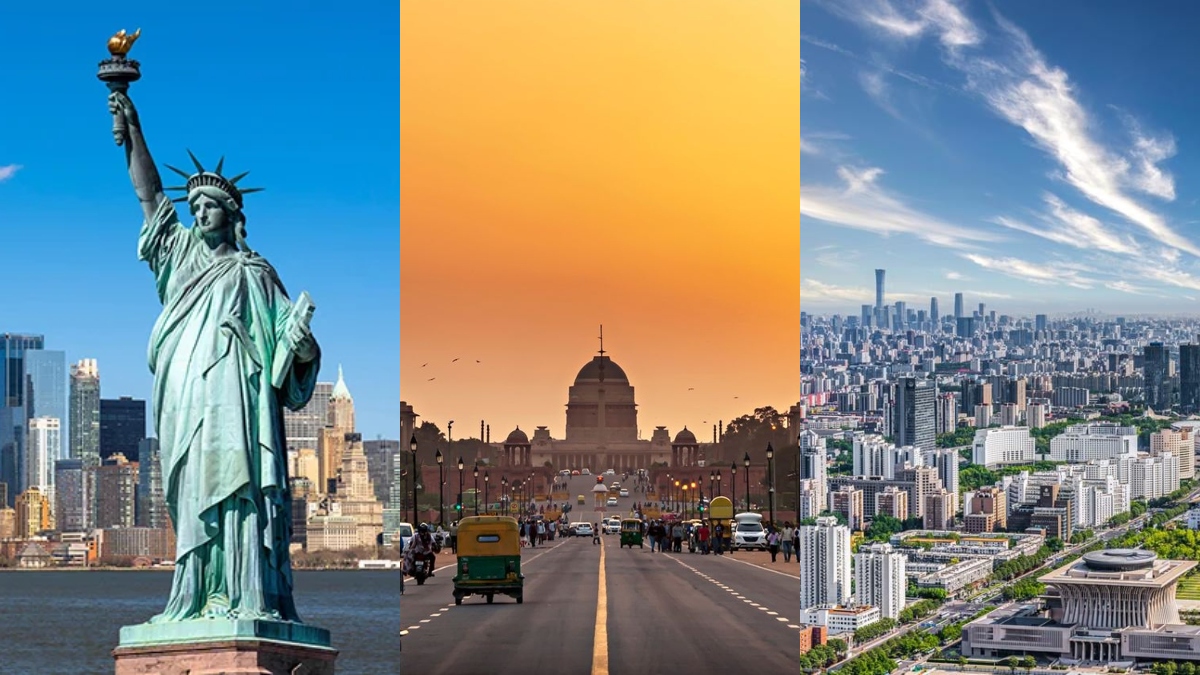 |
|
The article, while brief, touches upon a significant economic shift expected to occur in the coming years: India's projected rise to become the world's fourth-largest economy, surpassing Japan. This is a momentous occasion, signifying not only India's growing economic prowess but also a potential reshuffling of the global economic order. The article itself provides little in the way of detailed analysis or context, simply stating the fact and including a series of images (sourced from social media) presumably related to the topic. However, the underlying implications of this economic development are vast and warrant further exploration. India's economic growth has been a topic of considerable interest and debate for decades. Its transformation from a largely agrarian economy to a burgeoning industrial and service-based one has been remarkable. This growth has been fueled by a combination of factors, including a large and youthful population, increasing urbanization, a growing middle class, and government policies aimed at attracting foreign investment and promoting domestic industries. The information technology (IT) sector, in particular, has played a pivotal role in India's economic success, transforming the country into a global hub for software development, outsourcing, and IT-enabled services. However, India's economic journey has not been without its challenges. The country continues to grapple with issues such as poverty, inequality, inadequate infrastructure, and bureaucratic hurdles. Furthermore, the rapid pace of economic growth has placed significant strain on the environment, leading to concerns about pollution, deforestation, and climate change. Despite these challenges, India's economic potential remains immense. Its large and growing domestic market, coupled with its strategic location and abundant natural resources, makes it an attractive destination for investment and a key player in the global economy. The rise of India as a major economic power also has significant geopolitical implications. As India's economic influence grows, it is likely to play a more prominent role in international affairs, including trade negotiations, climate change agreements, and security matters. The relationship between India and other major economic powers, such as the United States, China, and the European Union, will be crucial in shaping the future of the global economy. The comparison with Japan is particularly interesting. Japan has long been a dominant economic force in Asia and the world, known for its technological innovation, manufacturing prowess, and high standards of living. However, Japan's economy has faced challenges in recent years, including an aging population, deflation, and increased competition from other Asian economies. India's rise to become the fourth-largest economy suggests a potential shift in the balance of economic power in Asia, with India emerging as a new engine of growth and innovation. This does not necessarily mean that Japan's economic importance will diminish entirely. Japan still possesses significant technological advantages and a highly skilled workforce. However, it does suggest that India is increasingly becoming a force to be reckoned with in the global economic landscape. The article's lack of detailed analysis is a missed opportunity. It could have explored the specific factors driving India's economic growth, the challenges that India faces, and the potential implications of this economic shift for the rest of the world. For example, the article could have discussed the impact of government policies, such as the Make in India initiative and the Digital India campaign, on India's economic performance. It could have also examined the role of foreign investment in fueling India's growth and the challenges of attracting and retaining foreign capital. Furthermore, the article could have addressed the social and environmental implications of India's economic growth, such as the impact on poverty, inequality, and climate change. By providing a more comprehensive and nuanced analysis, the article could have offered readers a deeper understanding of the complex dynamics shaping India's economic trajectory. The reliance on social media images also detracts from the article's credibility. While images can be a valuable tool for illustrating a story, they should be carefully selected and properly attributed. Using images sourced from social media without proper context or verification can raise questions about their authenticity and relevance. A more professional approach would have been to use images from reputable news agencies or government sources. In conclusion, while the article highlights an important economic development, it lacks depth and analysis. By providing more context, exploring the underlying factors driving India's economic growth, and addressing the challenges and implications of this shift, the article could have been more informative and engaging. The rise of India as a major economic power is a complex and multifaceted phenomenon that deserves a more thorough and nuanced treatment. The global economic landscape is constantly evolving, and India's ascent is a significant marker of that change. This warrants careful consideration and insightful analysis. Moving forward, it will be crucial to understand how India manages its growth, addresses its challenges, and navigates its role in the global economic order. India's future trajectory will undoubtedly have a profound impact on the world stage.
Source: India surpasses Japan to become 4th largest economy: Check out top 10 economies in world | Pics
